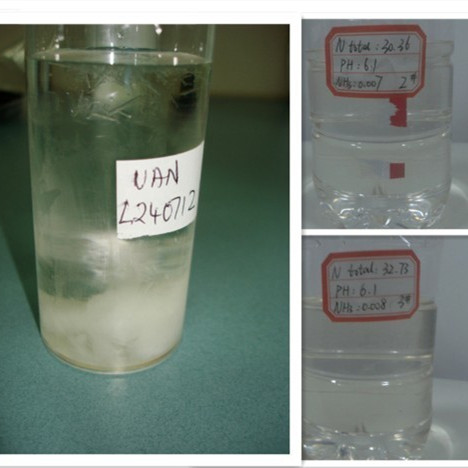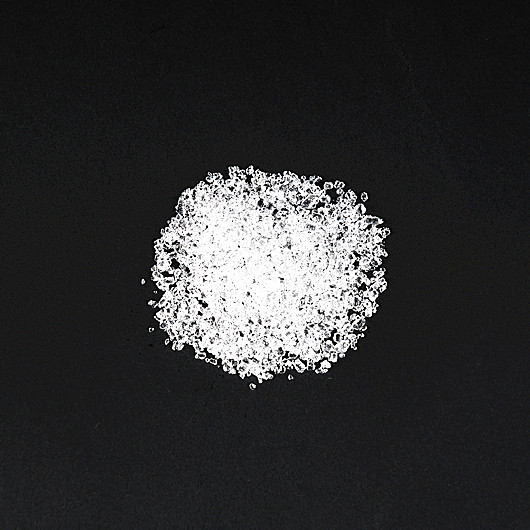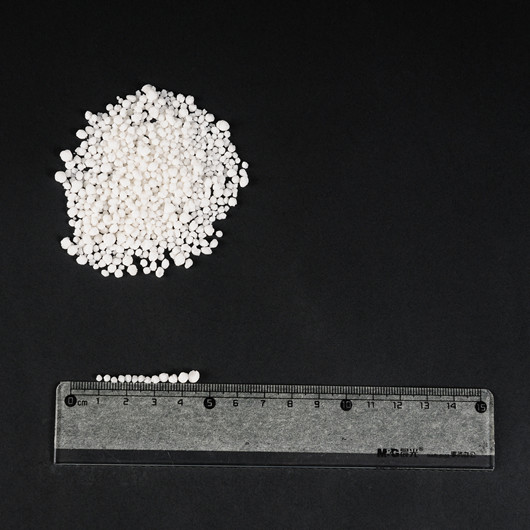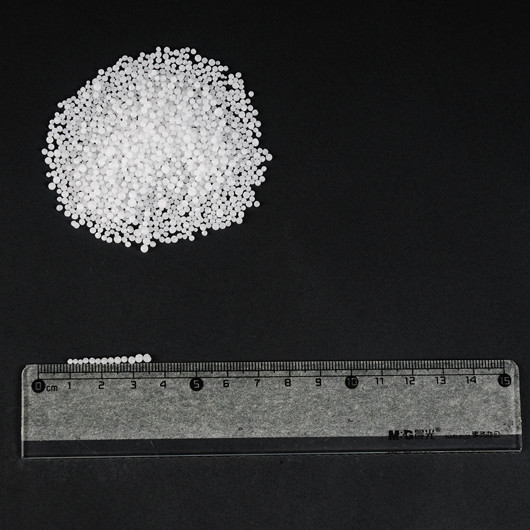A violent explosion occurred in the port area of Beirut, the capital of Lebanon, on the evening of the 4th, causing a large number of casualties. At present, the specific cause of the explosion is still unclear, but several Lebanese government officials said that the explosion may have been caused by 2,750 tons of ammonium nitrate stored in the port warehouse. What is ammonium nitrate? Why is its explosive power so great? How to avoid such accidents?
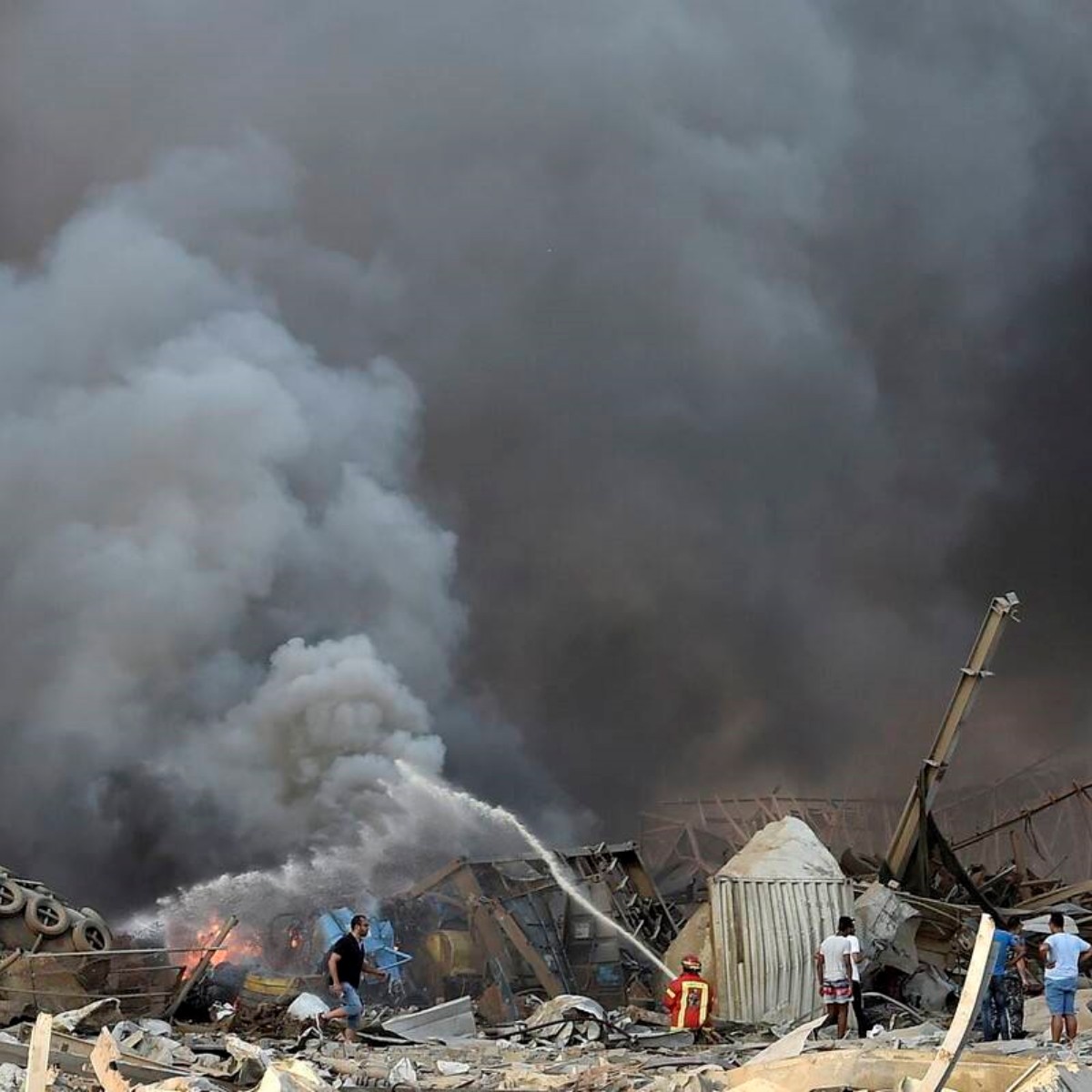
What are the main uses of ammonium nitrate?
Ammonium nitrate is mainly used as fertilizer, industrial and military explosives, and can be used in pesticides, refrigerants, nitrogen oxide absorbents, and in the manufacture of laughing gas and fireworks.
Ammonium nitrate is an extremely insensitive explosive, even more insensitive than the safe explosive c4. An industrial 8# detonator is not enough to detonate ammonium nitrate mixed with sensitizer. Ammonium nitrate is the most difficult nitric acid explosive to detonate. The impact sensitivity is: 50kg hammer 50cm drop height, 0% explosion.
Compared with the 200g hammer of the famous explosive nitroglycerin, which has a 20cm drop height and 100% explosion sensitivity, the insensitivity of ammonium nitrate can be seen. Moreover, once the ammonium nitrate is dissolved in water, the detonation sensitivity will be greatly reduced, and it is impossible to detonate by human impact.
Ammonium nitrate can also be used as a raw material for explosives. Although it is stable and non-flammable at room temperature, it is also an oxidizer. When it encounters combustibles on fire, it can fuel the fire and react with combustibles to explode. Ammonium nitrate also explodes when heated or subjected to severe impact. Depending on the heating temperature, the decomposition products are also different; the higher the temperature, the faster the related reaction, and it will decompose violently and explode when it reaches above 400 degrees Celsius. When ammonium nitrate is mixed with reducing agents, organic substances, flammable substances, etc., it can also form explosive mixtures.
How powerful is the explosion of ammonium nitrate?
Some insiders said that the destructiveness of the accident in the Beirut port area was equivalent to the impact of a small nuclear bomb explosion producing shock waves and air waves, destroying a large number of buildings.
According to experts, in order to ensure safety and avoid the recurrence of such accidents, ammonium nitrate must be stored in a cool, dry and well-ventilated warehouse, away from fire and heat sources. At the same time, ammonium nitrate should be stored separately from combustibles, reducing agents, acids, and active metal powders. Since ammonium nitrate is prone to explosion after impact, impact and friction are strictly prohibited during storage and handling.
How should ammonium nitrate be stored?
Ammonium nitrate is very hygroscopic, easy to agglomerate and deliquescence, so it should be stored in a dry and cool place. The temperature of the storage room should be kept below 30°C. It is best not to put it in a kitchen with a heat source in rural areas. Ammonium nitrate has combustion-supporting properties, so it should not be piled together with combustibles such as kerosene, gasoline, straw, wood chips, etc. during storage, so as not to cause a fire.
Ammonium nitrate is easy to explode. If it is mixed with copper, iron and other metal powders, once it is rubbed and hit, it will cause an explosion accident. It is strictly forbidden to slam with metal objects and crush them with heavy objects
Ammonium nitrate can also be used as a raw material for explosives. Although it is stable and non-flammable at room temperature, it is also an oxidizer. When it encounters combustibles on fire, it can fuel the fire and react with combustibles to explode. Ammonium nitrate also explodes when heated or subjected to severe impact. Depending on the heating temperature, the decomposition products are also different; the higher the temperature, the faster the related reaction, and it will decompose violently and explode when it reaches above 400 degrees Celsius. When ammonium nitrate is mixed with reducing agents, organic substances, flammable substances, etc., it can also form explosive mixtures.
How powerful is the explosion of ammonium nitrate?
Some insiders said that the destructiveness of the accident in the Beirut port area was equivalent to the impact of a small nuclear bomb explosion producing shock waves and air waves, destroying a large number of buildings.
According to experts, in order to ensure safety and avoid the recurrence of such accidents, ammonium nitrate must be stored in a cool, dry and well-ventilated warehouse, away from fire and heat sources. At the same time, ammonium nitrate should be stored separately from combustibles, reducing agents, acids, and active metal powders. Since ammonium nitrate is prone to explosion after impact, impact and friction are strictly prohibited during storage and handling.
How should ammonium nitrate be stored?
Ammonium nitrate is very hygroscopic, easy to agglomerate and deliquescence, so it should be stored in a dry and cool place. The temperature of the storage room should be kept below 30°C. It is best not to put it in a kitchen with a heat source in rural areas. Ammonium nitrate has combustion-supporting properties, so it should not be piled together with combustibles such as kerosene, gasoline, straw, wood chips, etc. during storage, so as not to cause a fire.
Ammonium nitrate is easy to explode. If it is mixed with copper, iron and other metal powders, once it is rubbed and hit, it will cause an explosion accident. It is strictly forbidden to slam with metal objects and crush them with heavy objects
Ammonium nitrate is a colorless, odorless crystal that is easily soluble in water. Ammonium nitrate is widely used as fertilizer and explosives. When used as a fertilizer, ammonium nitrate often exists in granular form, and it can quickly dissolve when it encounters water, thereby releasing the nutrient needed for plant growth-nitrogen.A violent explosion occurred in the port area of Beirut, the capital of Lebanon, on the evening of the 4th, causing a large number of casualties. At present, the specific cause of the explosion is still unclear, but several Lebanese government officials said that the explosion may have been caused by 2,750 tons of ammonium nitrate stored in the port warehouse. What is ammonium nitrate? Why is its explosive power so great? How to avoid such accidents?
What are the main uses of ammonium nitrate?
Ammonium nitrate is mainly used as fertilizer, industrial and military explosives, and can be used in pesticides, refrigerants, nitrogen oxide absorbents, and in the manufacture of laughing gas and fireworks.
Ammonium nitrate is an extremely insensitive explosive, even more insensitive than the safe explosive c4. An industrial 8# detonator is not enough to detonate ammonium nitrate mixed with sensitizer. Ammonium nitrate is the most difficult nitric acid explosive to detonate. The impact sensitivity is: 50kg hammer 50cm drop height, 0% explosion.
Compared with the 200g hammer of the famous explosive nitroglycerin, which has a 20cm drop height and 100% explosion sensitivity, the insensitivity of ammonium nitrate can be seen. Moreover, once the ammonium nitrate is dissolved in water, the detonation sensitivity will be greatly reduced, and it is impossible to detonate by human impact.
Ammonium nitrate is a colorless, odorless crystal that is easily soluble in water. Ammonium nitrate is widely used as fertilizer and explosives. When used as a fertilizer, ammonium nitrate often exists in granular form, and it can quickly dissolve when it encounters water, thereby releasing the nutrient needed for plant growth-nitrogen.
ammonium nitrate can be explosive under certain conditions. Ammonium nitrate itself is not classified as an explosive, but it can become highly explosive when it is mixed with other substances or when specific conditions are met.
One common example of an explosive mixture involving ammonium nitrate is ANFO (Ammonium Nitrate Fuel Oil), which is a widely used industrial explosive. ANFO is created by mixing ammonium nitrate with a fuel oil, typically diesel, to create a powerful explosive mixture.
However, ammonium nitrate can become dangerously explosive when it is stored improperly or when it undergoes certain physical changes. For instance, if ammonium nitrate is contaminated with certain substances or if it undergoes decomposition, it can become sensitive to heat, shock, or friction, leading to the potential for detonation.
Several tragic accidents have occurred due to the mishandling and improper storage of ammonium nitrate, leading to massive explosions. As such, it is crucial to handle, store, and transport ammonium nitrate with appropriate safety measures and adhere to regulations to prevent potential hazards.
FAQ
Is ammonium nitrate explosive?
Ammonium nitrate itself is not classified as an explosive, but it can become highly explosive when mixed with certain substances or under specific conditions.
How does ammonium nitrate become explosive?
When mixed with a fuel source, such as fuel oil (ANFO), ammonium nitrate forms a powerful explosive mixture. Additionally, improper storage or contamination with certain substances can make ammonium nitrate sensitive to heat, shock, or friction, leading to potential detonation.
Why is ammonium nitrate used in explosives?
Ammonium nitrate is commonly used in explosives due to its ability to release oxygen when it decomposes rapidly, aiding the combustion of the fuel source. This combination produces a highly explosive material.
What are some examples of ammonium nitrate-based explosives?
ANFO (Ammonium Nitrate Fuel Oil) is a widely used industrial explosive that consists of a mixture of ammonium nitrate and fuel oil. Other examples include ammonium nitrate mixed with various organic or inorganic materials to create different types of explosives.
What are the risks associated with ammonium nitrate?
Improper handling, storage, or transportation of ammonium nitrate can lead to accidental explosions, causing significant damage and loss of life. Therefore, it is essential to follow strict safety guidelines and regulations when dealing with ammonium nitrate.
How can accidental explosions be prevented?
To prevent accidental explosions, it is crucial to store ammonium nitrate in a safe and controlled environment, away from potential sources of heat, shock, or friction. Regular inspections and adherence to safety guidelines are essential to ensure proper handling and storage.
What industries use ammonium nitrate?
Ammonium nitrate is used in various industries, including agriculture as a fertilizer, and in the mining and construction sectors as an explosive for blasting purposes.
Are there any regulations governing the handling of ammonium nitrate?
Different countries have regulations and guidelines regarding the handling, storage, and transportation of ammonium nitrate. These regulations aim to minimize the risk of accidental explosions and ensure public safety.
Can ammonium nitrate be used safely?
When handled and stored properly, ammonium nitrate can be used safely. By following established safety protocols and guidelines, the risks associated with ammonium nitrate can be mitigated.
What should I do if I come across suspicious ammonium nitrate?
If you encounter suspicious or improperly stored ammonium nitrate, it is essential to report it to the appropriate authorities immediately to prevent potential hazards and ensure public safety.
